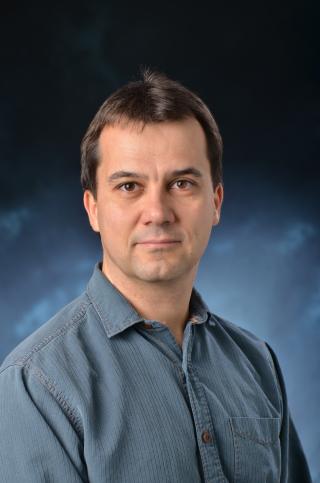 Zoltan Sternovsky
Zoltan Sternovsky
Associate Professor, Smead Aerospace / LASP
Wednesday, Oct. 13 | 12:00 P.M. | AERO 114
Abstract: The tremendous success of the Cosmic Dust Analyzer (CDA) instrument on the Cassini mission provided inspiration for further dust investigations. There are currently two NASA flagship missions in development that will carry a dust analyzer instruments as part of the scientific payload. These are the Europe Clipper mission that will assess the habitability of this enigmatic Galilean moon, and the Interstellar Mapping and Accelerator Probe (IMAP) that will resolve some of the fundamental scientific questions about the local interstellar medium. Both dust analyzer instruments are provided by the University of Colorado. In addition, the Japanese Destiny+ mission, designed for a Phaethon flyby, also carries a dust analyzer instrument from Germany. The Parker Solar Probe (PSP) mission is in its prime exploring the near-vicinity of the Sun. PSP’s plasma wave instruments, just as similar instruments on previous missions, are sensitive to dust impacts occurring on the body of the spacecraft. This presentation will be a review of the recent development in dust instrumentation technology. Specifically, it will review the design and capabilities of modern dust analyzer instruments, and the supporting laboratory studies. The latter are enabled by the unique dust accelerator facility operated at CU and is used for characterizing the properties of impact ionization plasmas, calibration of mass spectra from known samples, or the understanding of the processes how antenna instruments detect dust impacts.
Bio: Dr. Zoltan Sternovsky is an associate professor of Aerospace Engineering Sciences at the University of Colorado in Boulder, Colorado, and a research scientist at the Laboratory for Atmospheric and Space Physics, focusing on aerosols and dusty plasmas. His professional interests include laboratory plasma physics and related experimental measurements, and developing instruments for space. He holds a PhD and an MS degree in physics from Charles University in Prague, Czech Republic.
